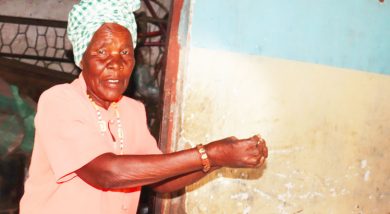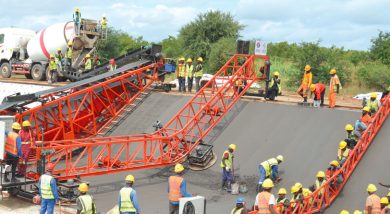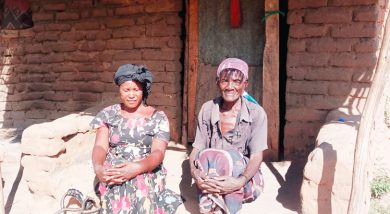Cyclone worsens vulnerability
Four months after Cyclone Freddy claimed 679 lives and displaced 659 278 people in the Southern Region, Monica Mapira is still grappling with the after effects.
After the torrents battered her house and destroyed her property, the elderly woman and her nine dependents in Traditional Authority Mwambo in Zomba District, now live on an open ground where her house once stood. When the house collapsed, they fled to a nearby congested evacuation camp, which has since been shut.
“When our camp was closed, I had no home to return to as I don’t have anyone to help me rebuild. I didn’t receive a tent when living in the camp, where we had hot days and cold nights because we were homeless. Our safety is compromised,” she explains.
But her neighbour Ivy James, 32, is among few displaced persons still seeking shelter at Namwera Camp.
“I pray that they do not close this camp since I don’t have anywhere to go,” pleads the single mother of four.

James is nursing a six-year-old daughter with an arm injury sustained after a brick hit her.
While struggling to rebuild their homes and livelihoods with limited resources, most survivors of the country’s most devastating cyclone were already facing hunger when they lost their crops to the rainstorms and flooding.
Esther Chibalo’s rice field and household goods were wiped out by floods, leaving her family with only the clothes they were wearing when tragedy struck.
The Department of Disaster Management Affairs (Dodma) estimates that the cyclone left 363 856 households with 1 637 351 people, including 842 952 women and girls, food insecure. According to its emergency plan in response to Cyclone Freddy, the worst affected crop was maize, the country’s staple grain.
It reads: “The situation is critical for people who are living in camps as they lost almost all their items, especially food.
“Some households, who are hosting their displaced neighbours and relatives, are under high pressure to provide essential items, especially food. Owing to this situation, there is a need to urgently support the affected people with food assistance.”
Malawi requires K147.8 billion for disaster recovery, but only mobilised K37.3 billion for the planned interventions.
The government has since appealed for international and private sector assistance to fill the K110.6 billion funding gap in the three-month response plan, expiring this month. Cyclone Freddy has also undermined food security, exposing about 3.74 million people to hunger, shows a 2023 Global Report on Food Crises.
The report, funded by the European Union, shows that 19.35 percent of the country’s population will yet again face hunger this year due to poor harvest, rising food prices and low household purchasing power.
In their Hunger Hotspots Outlook for June to November 2023, two United Nations agencies, the World Food Programme (WFP) and Food and Agriculture Organisation (FAO), indicate that at least 3.8 million Malawians face acute food shortage while 1.8 million children and women need nutrition aid to avert starvation.
As the plight of the affected population worsens, the Malawi Red Cross Society says it has a deficit of about K4 billion to support its recovery plan for Cyclone Freddy survivors.
The humanitarian agency appealed for more than K6 billion through the International Federation of the Red Cross and Red Crescent, but only raised K2.4 billion.
“As the country is phasing out the response phase, we are having this deficit in the resources we require to support the survivors recover from the disaster,” says Red Cross director of programmes and development Prisca Chisala.
However, Senior Chief Kapeni of Blantyre says: “Despite the financial challenges, authorities must work on a long-term plan to help the vulnerable population get back on their feet and build back better.”
Commenting on the sluggish recovery, both European Union (EU) Ambassador Rune Skinnebach and the US envoy David Young say the terrible effects of Cyclone Freddy speaks volume of the vulnerability of the Malawi population; hence, the need to strengthen the people to build resilience.
Young says: “Cyclone Freddy is a long-term disaster and Malawians may take time to recover.
“We need to keep up the commitment, to do what we can to help the people of southern Malawi.”
Concurring, the African Union (AU) commissioner for health, humanitarian affairs and social development Minata Samate Cessouma says quick assistance to the displaced people in the Cyclone Freddy disaster is critical in ensuring that they do not go back to the disaster-prone areas, thereby preventing future disasters.





